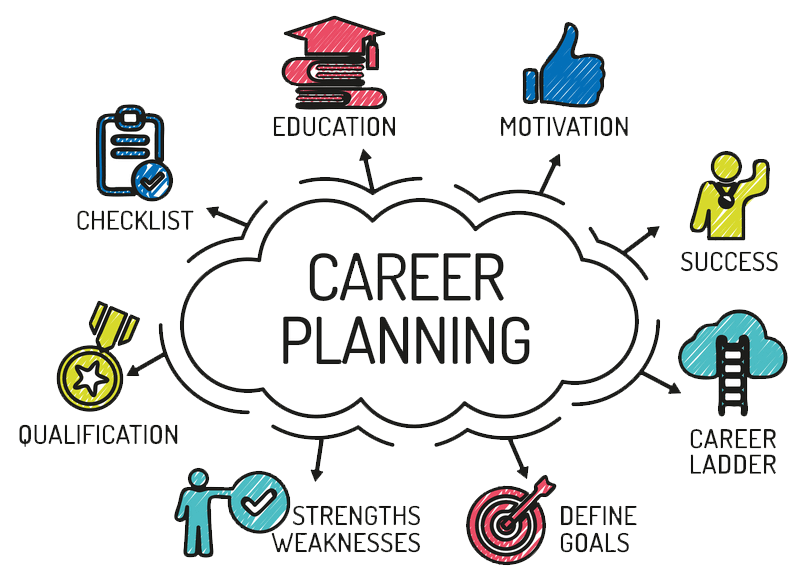What goals would you like to achieve in your job over the next few years? How do you want to be more successful? Are you aiming for the next step in your career? Good planning at work is often essential for getting ahead. However, many employees make crucial mistakes when it comes to career planning.
Mistake 1: Goals too high, planning too long-term
“Where do you see yourself in five years?” Perhaps you have already been asked this or something similar in an interview. Or you have dealt with it yourself. As part of your career planning, you must be realistic about the answers. So plan in small steps. Few people stumble up the career ladder more or less in their sleep. Most, however, require a lot of work. It also takes time before career goals can be achieved. Do not think about where you would like to be professionally in five, ten, or even 15 years, but rather what you want to achieve in the next three months or in the coming year. You can estimate these periods much better. At the same time, you shouldn’t set yourself too high goals. Because failure to achieve permanently demotivates.

So don’t just think about what you want to achieve, but also when and how. Put this in writing by also formulating milestones. Regularly take stock of which goal you have actually implemented and deal critically with it if a plan has not worked.
Mistake 2: comparing with others
The colleague has been given responsibility for a project, even though you would be much better suited from your point of view? The office neighbor earns more than you? As a rule, comparisons with others do not help you. Because concerning your individual career planning, what counts is what you implement, achieve and achieve. So stick to yourself as you create your career plan and don’t look left and right. That quickly distracts from the actual topic. Ask yourself what your next steps are, regardless of what colleague X has set out to do.
Mistake 3: Non-stringent pursuit of a plan
No life can be completely planned from start to finish. And so it is with professional life. It is therefore necessary that you remain flexible and that you also react to unpredictable events and not stick to your plan with twists and turns. If departments are merged, new responsibilities are added or there are other changes in the company or in your private life, it is important to react appropriately. Besides: New challenges usually also offer new opportunities. Take advantage of them and check regularly whether your career planning is still up-to-date or whether it needs to be adapted to new circumstances in some areas.

Mistake 4: rash action and blind actionism
Are you annoyed because you weren’t assigned the project that you were promised? Has a position become available in your rival company that will supposedly help you advance faster than you thought? Before you rush to change jobs, follow up closely. Because the grass isn’t always greener on the other side. Study the vacant position in detail. What would your field of activity be? What career opportunities do you have? Does a new employer offer you more than your current company?
Therefore, read the job description carefully, exchange ideas – if possible – with people who already work for the company, and get a look behind the scenes. Weigh carefully whether changing jobs will really bring you closer to your goals. Because blind actionism quickly becomes a brake on your career. For your career advancement plan to succeed, you need to think carefully and weigh up.

